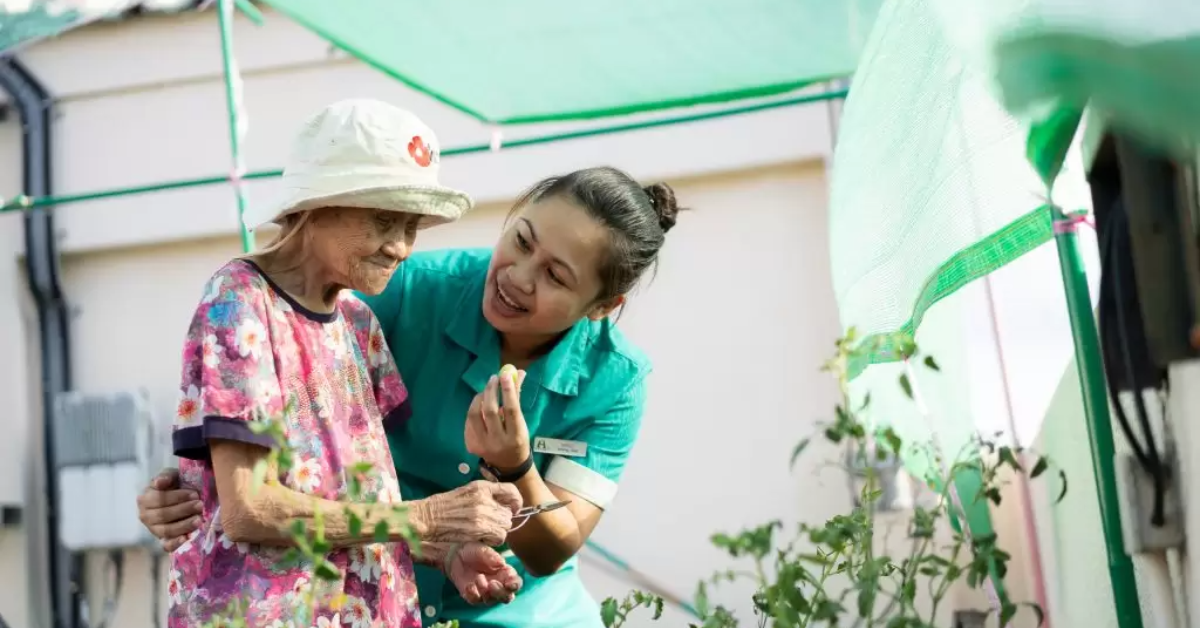Comprehensive Dementia Care in Singapore: A Guide to Support and Services
Dementia is a growing concern in Singapore, with an aging population leading to an increase in cases. Providing effective care for individuals with dementia requires a comprehensive approach that addresses their unique needs. This guide explores the landscape of Dementia Care Singapore, highlighting available services, support systems, and considerations for caregivers.
Understanding Dementia
Dementia is a collective term for progressive neurological disorders that affect memory, thinking, behavior, and the ability to perform everyday activities. Common types include Alzheimer’s disease, vascular dementia, and Lewy body dementia. Early signs may involve memory loss, confusion, difficulty with language, and changes in mood or behavior.
The Growing Need for Dementia Care in Singapore
Singapore’s rapidly aging population has led to an increase in dementia cases. According to the Ministry of Health, the number of individuals aged 65 and above is projected to double by 2030. This demographic shift underscores the importance of accessible and quality dementia care services.
Dementia Care Services in Singapore
Singapore offers a range of services to support individuals with dementia and their caregivers:
1. Community-Based Services
-
Dementia Day Care Centers: Provide structured activities and supervision during the day, allowing caregivers respite.
-
Home-Based Care: Professional caregivers offer assistance with daily activities, medical care, and companionship at home.
2. Residential Care Facilities
-
Nursing Homes: Offer 24-hour care for individuals with advanced dementia who require constant supervision.
-
Specialized Dementia Units: Some facilities have dedicated units with trained staff and environments tailored to dementia patients.
3. Support Services for Caregivers
-
Support Groups: Provide emotional support and practical advice for caregivers.
-
Training Programs: Educate caregivers on managing dementia-related challenges and effective communication strategies.
Choosing the Right Dementia Care
Selecting appropriate care depends on several factors:
-
Stage of Dementia: Early-stage individuals may benefit from day care services, while advanced stages might require residential care.
-
Caregiver Capacity: Assessing the primary caregiver’s ability to provide care is crucial.
-
Financial Considerations: Understanding the costs and available subsidies can influence decisions.
Financial Support and Subsidies
The Singapore government offers various schemes to alleviate the financial burden of dementia care:
-
Pioneer Generation Package: Provides subsidies for medical services for eligible seniors.
-
CHAS (Community Health Assist Scheme): Offers subsidies for medical and dental care at participating clinics.
-
CareShield Life: A long-term care insurance scheme providing payouts for severe disability.
Creating a Dementia-Friendly Environment
Adapting living spaces can significantly improve the quality of life for individuals with dementia:
-
Safety Measures: Install grab bars, remove tripping hazards, and ensure adequate lighting.
-
Simplified Layouts: Maintain a clutter-free environment with clear signage to reduce confusion.
-
Routine and Familiarity: Establish consistent daily routines to provide a sense of stability.
The Role of Technology in Dementia Care
Innovations are enhancing dementia care:
-
Monitoring Devices: Wearable trackers and home sensors help monitor movements and ensure safety.
-
Cognitive Training Apps: Digital tools designed to stimulate memory and cognitive functions.
-
Telehealth Services: Allow remote consultations, reducing the need for travel.
Supporting Caregivers
Caregivers play a vital role and need support to prevent burnout:
-
Respite Care: Temporary relief through short-term care services.
-
Counseling Services: Professional support to manage stress and emotional challenges.
-
Educational Resources: Access to information and training to enhance caregiving skills.
Community Initiatives and Awareness
Singapore is fostering a dementia-friendly society through:
-
Public Education Campaigns: Raising awareness to reduce stigma.
-
Dementia-Friendly Communities: Neighborhoods designed with features to support individuals with dementia.
-
Volunteer Programs: Encouraging community involvement in supporting dementia patients and caregivers.
Conclusion
Dementia care in Singapore encompasses a comprehensive network of services and support systems aimed at enhancing the lives of individuals with dementia and their caregivers. By understanding available resources and making informed choices, families can navigate the challenges of dementia with greater confidence and compassion.
Frequently Asked Questions (FAQs)
Q1: What are the early signs of dementia?
A1: Early signs include memory loss, difficulty concentrating, confusion about time and place, and changes in mood or behavior.
Q2: How can I access dementia care services in Singapore?
A2: Services can be accessed through referrals from general practitioners, hospitals, or directly contacting care providers.
Q3: Are there financial assistance schemes for dementia care?
A3: Yes, schemes like the Pioneer Generation Package, CHAS, and CareShield Life offer financial support.
Q4: What support is available for caregivers?
A4: Support includes training programs, support groups, respite care services, and counseling.
Q5: How can I make my home more dementia-friendly?
A5: Implement safety measures, maintain a simple and familiar layout, and establish consistent routines.







